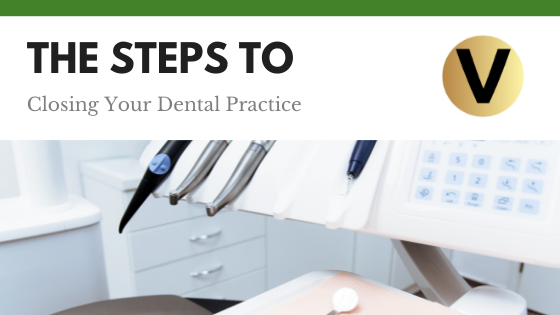It can be challenging to close a business for emotional and financial reasons. A dental practice that is not practical may eat into retirement savings or create debt. Before selling a dental practice, a clear plan is necessary.
Notify the Patients
Before closing, a dentist should try to notify all patients in advance. This can be done in a letter or community announcement. Ideally, patients should be notified approximately 30 to 60 days before the office is closed.
Future appointments can still be scheduled, but new patients are discouraged. Starting a new ongoing treatment is also not advised during the last two months of business. For patients who still need ongoing treatment, finding another dentist for them is recommended.
Patient transfers usually require specific information. A new care provider will need dental records that can only be obtained with the patient’s permission.
Resell Dental Equipment
Dental equipment can be sold depending on the circumstance. The value of this equipment is assessed by a professional appraiser or reputable dental supplier. Independent estimations are recommended for a second opinion. The American Dental Association provides a directory of appraisers and brokers.
New and international dentists will frequently purchase the equipment at a discounted rate. For potential tax credit, dentists can also donate equipment. Instruments that patients have used must be adequately disinfected before donating or selling to others.
Destroy Old Records
State retention laws dictate how patient records should be handled. Depending on location, the Statute of Limitation may vary. Shredding is one of the most popular ways to destroy patient information for all patient records securely.
Recycling paper does not provide the same type of privacy. This information could be found by paper sorters or other recycling center employees. Confidentiality is a high priority in any medical practice and needs to be respected by all doctors.
Tie Up Loose Ends
Before selling or closing a business, staff should be told approximately 90 days ahead of schedule. Depending on the state, this may be a legal requirement. The staff is more likely to stay until the last day by offering pay incentives.
Another issue arises when patients have outstanding debt. Collecting payments from prior patients is much more difficult than settling bills before the practice is closed.
For large dental bills, an outside collection agency may be necessary. This can be due to long payment plans or costly procedures. Significant debt should be documented.
When a dental practice shuts down, this can be a drastic change for employees, owners, and patients. Regardless of the reason, closing or selling a business can bring uncertainty. By constructing a clear plan, dentists and patients can move forward.

